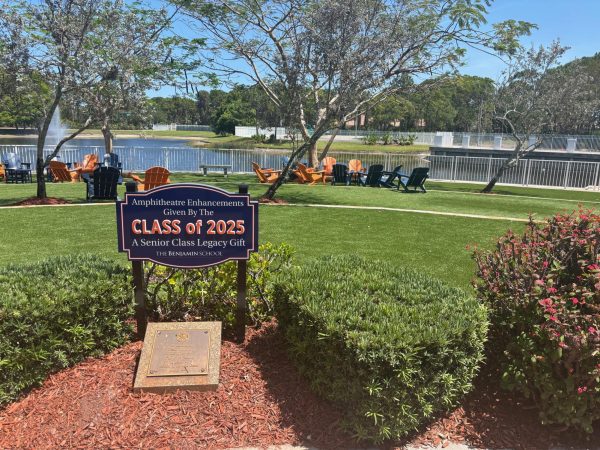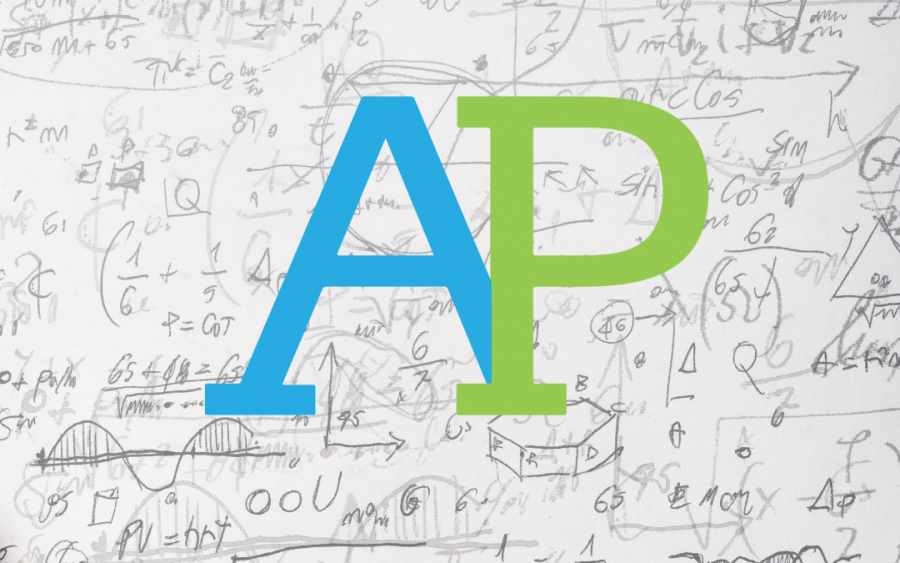Bucs’ AP Scores Again Exceed State, National Averages
The mid-summer release of the scores of last year’s AP exams testify to the validity of the School’s frequent boast that it produces students who are leaps and bounds above most others. With 74% of students earning at least one qualifying AP score of a 3, testers and their teachers turn again to repeating– and exceeding– those results this year.
The equity and excellence of the Upper School’s AP programs remain evident in this year’s testing data. 73% of the members of the Class of 2022 earned a 3 on at least one AP exam during their high school careers; already 52.2% of the Class of 2023 and 33% of the Class of 2024 have reached that summit.
During the 2021-2022 school year, 258 students submitted 627 exams for scoring. The vast majority– 417 were considered qualifying scores. This designation, a score of 3+, signals that a student has shown the proficiency expected of students enrolled in the equivalent course at the college and university level. Of particular note is that of those qualifying scores, 118 were at the highest caliber; translated, nearly one-in-five exams taken by Benjamin students earned the highest possible score of 5 on the exam.
Statistically, the results of the May exams reveal a lot about the Upper School community. In terms of gender, the battle of the sexes was a statistical tie, with girls scoring an average of 3.20 and boys an average of 3.10. Scores among students in different grades, however, varied a bit more.
In their two AP courses, Computer Science Principles and World History: Modern, freshmen scored an average of 3.71, which was just over a half-point higher than the average scored by sophomores in their five AP courses. Members of the Class of 2023, which accounted for 255 exams, earned an average of 3.43. Graduates from the Class of 2022 submitted 263 exams in an astounding 24 subjects; in most of the 20 subjects they shared, junior and senior averages were statistically indistinguishable.
Causes for the differing scores among grades may include difficulty of the course/subject matter, size of student population taking the course, college credit policies (some schools may not recognize some AP results), and revised rubrics/curricula as designated by the College Board.
“The headline here is that the hard work students and teachers are putting in day after day in classrooms and labs, on campus and on field trips, is helping to better prepare the Bucs for success in college now and once they graduate,” opined AP teacher Dr. Peruggia.
Several of the AP courses in the Upper School can boast of 100% qualifying score rates: 2D-Art, Calculus-BC, Chemistry, English Literature, and Spanish. The courses span departments and skills, suggesting that one can find success in classrooms throughout campus.
Despite a slight drop in the percentage of total students with scores of 3+ from the 2020-2021 school year, 79% to 74%, the Upper School has continued to exceed state and national averages on these advanced exams. In AP Biology, for example, students outperformed the state 3+ percentile by nearly 30%; in US Government and Politics, the difference was nearly 20%. In English Language, the group’s 97.4% rate exceeded Florida’s 54.1% and the global percentage of 55.7 by more than 40%.
Among those who proved their mettle on this year’s slate of exams was current junior Andrew Lappin, who earned a 5 on the AP United States History test.
“I did great on my AP test last year scoring a five. At first, I thought I was going to get an average score, but I believe that my studying habits and my teacher, Mr. Hoy, led me to my grade. I would recommend students to make sure they have a clear mind on test day, and to not only watch review videos,” said Lappin.
Having recently taught AP courses in three different departments–AP Statistics, AP Psychology, and AP English Literature– Peruggia noted that success in any AP course often begins well before day one of that class, and can often be the result of work in other disciplines.
“Students who do well in AP Psych often did so because of the excellent foundation that they received from Mrs. Pierman in HSB, Ms. Szeliga in Biology, Mrs. Wendler in English, and even their coaches in the athletic department. No one passes AP Stats without the critical reading skills they learn from people like Ms. Ditaranto or the algebra they absorbed from Mrs. Priola. You can’t write a successful AP Lit essay without the anecdotes provided by Ms. Misslehorn in history or chats about popular culture with Mr. Peck. AP success is the result of years of solid teamwork from all your teachers, not just those teaching you that specific class,” said Peruggia.
Everyone has their own way of studying, but when it comes to the college-level expectations of AP courses, it is very important to work ahead on your assignments and to use effective strategies to prepare for the test.
Senior Andrew Moffitt, whose six qualifying scores on APs last year, attributes his exam success to his teachers, study habits, and time management.
“For people going into AP classes next year, the most important piece of advice is to never let yourself get behind on any assignments. For example, in AP US Government and Politics, assignments can stack up quickly without you realizing it. In general, I think it is most important to stay ahead of your work and use your time wisely because it will definitely help with relieving stress throughout the year and it will also help you in preparing for unit tests and the AP exams,” said Moffitt.
Although not everybody may have received their desired score on one of the AP tests last spring, there are many ways to improve for this year’s tests.
Junior J.P Walsh recommends starting to study earlier rather than later for any upcoming test.
“I got a three on AP U.S History last year which I wasn’t the most excited about. I think I could’ve done better if I had started studying a couple of weeks before I initially did. I feel like if you aren’t cramming all the knowledge in, you tend to absorb more of the information,” said Walsh.
Even the College Board, makers of the AP and SAT exams, know that when it comes to academic success, one exam cannot possibly reveal one’s destiny. Every fall, the organization honors students whose performance is more wide-ranging with a trio of AP Scholar Awards. These awards are given based on all of a student’s average AP exam scores, with students receiving recognition for receiving qualifying scores on three or more exams. This spring, 105 Upper School students earned recognition as AP Scholars, Scholars with Honor, and Scholars with Distinction.
For those who do excel on these exams, college credit may be earned. In some cases, the amount of credit can lead to one’s ability to pursue multiple majors or even to graduate early. Consider, if one were to take the following commonly-enrolled AP courses at Benjamin: AP World History, AP Computer Principles, AP US History, AP English Language, AP Chemistry, AP Spanish, AP 2-D art, and AP English Literature. Qualifying scores on all of these exams would earn the student anywhere from 22-38 credits at UF, placing her one or two semesters ahead of other incoming freshmen in Gainesville. Each year, many Benjamin students have used their AP scores to save time and money at their new college homes.






